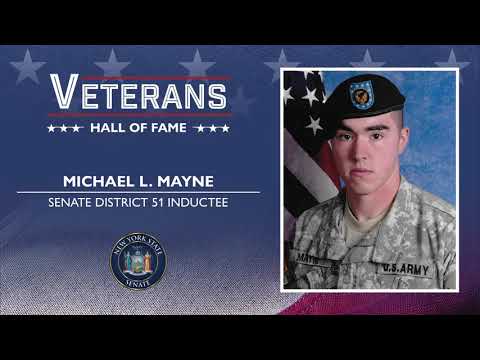
Senate Moves To Help Small Businesses Grow
Senator James L. Seward, Senate Majority Leader Joseph L. Bruno and members of the senate majority conference today unveiled a major plan that targets the biggest concerns that hold back small businesses from growing and creating new jobs. The plan would provide more than $3.5 billion in tax relief and assistance to small businesses, when fully implemented.
"New York’s economy is driven by small businesses and the Senate wants to make them more competitive so they create more jobs," Senator Bruno said. "From butchers, bakers and barbers to biotechnology firms emerging from business incubators, it’s the small business entrepreneurs who are building our economy and we must ensure that people with good ideas and a good work ethic are afforded every opportunity to succeed.
"Small businesses face unique hurdles to growth and prosperity including high taxes and red tape, and with this assistance package, we are fighting to help them clear those hurdles so they can grow and put their good ideas to work in New York State," Senator Bruno said.
The Senate plan would eliminate the corporate income and franchise tax for manufacturers; provide direct property tax relief checks to small businesses; provide tax relief for businesses that pay personal income tax; provide tax credits for the costs of energy and health insurance and cut State red tape and bureaucracy.
"Small businesses are the fabric of our communities and New York’s economic engine is dependent upon their success," Senator James Alesi, chairman of the Senate Committee on Commerce, Economic Development and Small Businesses, said. "It’s imperative that we ease the regulatory burden and provide tax relief in order to allow small businesses to prosper and thrive in this global economy."
There are more than 1.4 million small businesses in New York State, with 85 percent of them employing ten people or less. Small businesses employ 63 percent of the people in New York. The Senate small business assistance plan includes:
> Eliminating the income tax and corporate franchise tax on manufacturers, regardless of size, providing $600 million in tax relief;
> Creating a small business STAR program to provide direct rebate checks to small businesses that pay school taxes and employ less than 50 people, saving $435 million;
> A $1.7 billion plan to provide an income tax credit to help small businesses afford health insurance costs for employees; and provide incentives to offer health savings accounts and freedom policies;
> Eliminating the supplemental personal income tax on small businesses, providing $400 million in relief;
> $60 million in relief through reforms of the corporate franchise tax;
> A $350 million refundable tax credit to help small businesses with rising energy costs; and
> Relief from red tape and bureaucracy by simplifying and reducing paperwork, eliminating unnecessary or overly burdensome fees and permits, and creating a one stop shopping information center to help someone start or expand a small business in New York.
The Senate Majority small business assistance plan includes the following:
Eliminate Income and Corporate Franchise Taxes on Manufacturing
The centerpiece of the Senate Majority’s business tax relief plan is the elimination of the income tax and corporate franchise tax on manufacturers, regardless of size. Average monthly manufacturing employment has dropped from 983,100 in 1990 to 605,700 at the end of 2003, a 38.4 percent decline. When a manufacturing company downsizes, closes or moves out of State, the small businesses that supply and service the company also suffer economically.
It is estimated that the Senate plan to eliminate the corporate franchise tax will save manufacturing companies in New York $550 million. In addition, approximately $50 million will be provided to offset the loss of revenue from reductions in the 17 percent Metropolitan Commuter Transportation district business tax surcharge.
Small Businesses STAR property tax rebates
Earlier this year, the Senate Majority announced its REBATE-NY school property tax reduction program that would provide direct rebate checks to school property taxpayers. The Senate small business assistance plan creates a Small Business STAR program that would provide direct property tax rebate checks to small businesses that pay school property taxes and employ less than 50 people. It is estimated that the average rebate check would be worth $650 with a statewide value of $435 million in property tax relief.
Under the Small Business STAR plan, sponsored by Senator James S. Alesi (R-C, Perinton) and
Senator James Seward (R-C-I, Oneonta), eligible small businesses that are not making payments in lieu of taxes (PILOTS) for school purposes, would be entitled to the basic STAR exemption of $30,000. Businesses receiving a real property tax rebate under the Empire Zone program would not be eligible.
Personal Income Tax Reform for Small Businesses
Many small business owners in New York, including S corporations and partnerships, pay personal income taxes. Under the personal income tax, they are subject to a supplemental tax when their incomes exceed $100,000. This supplemental tax eliminates the benefits of the graduated tax schedule that the State employs. As a result, their tax burden increases by approximately $400 to $800. Money that could be invested in expanding their businesses. The Senate Majority proposes to eliminate this supplemental tax on the State's small businesses; allowing New York's small businesses $400 million to invest in the New York economy.
Although many small businesses pay income taxes under the personal income tax, they are required to compute their tax as if they paid under the corporate franchise tax and these businesses are required to pay the difference between the two taxes or the minimum tax under the corporate franchise tax.
The Senate plan would eliminate this burdensome computation and small businesses would only be subject to the personal income tax as they are in a majority of the other states. This proposal would return $60 million to New York's small businesses to reinvest and grow in New York.
Helping Small Businesses Afford Health Insurance
To help more small businesses afford the high cost of health insurance coverage for their employees, the Senate Majority is proposing an income tax credit equal to 43 percent of premiums paid by small businesses for health insurance. This proposal would save New York’s small businesses $1.7 billion annually. The Senate proposal also includes incentives for Health Savings Accounts
"Too many workers face the day to day challenge of keeping their health insurance when we’ve seen five straight years of double digit premium increases and costs have jumped a full 100 percent since 1999," Senator Seward, chairman of the Senate Insurance Committee, said. "For every 1 percent hike in premiums nationally, we estimate about 30,000 New Yorkers lose their health insurance. The senate is offering a commonsense approach to helping New Yorkers afford health insurance and get the choices and access to the care they need."
As part of HCRA 2000, the Healthy NY small business program was established to enable small businesses to offer health insurance coverage to their employees. However, only 7 percent of New York’s small businesses are able to benefit from this program. The Senate plan would provide additional incentives for small business employers to provide health insurance to their employees.
Small businesses would also be provided with incentives to offer Health Savings Accounts (HSAs) supported by "Freedom Policies", which are high deductible health plans not subject to the mandated benefits stipulated by New York State Insurance Law. These policies would cost approximately 40 percent less than existing comprehensive policies, have higher deductibles and be coupled with HSAs to help businesses that currently cannot afford to provide health insurance benefits and offer affordable, consumer driven health insurance.
Additionally, the eligibility threshold for Healthy NY would be increased from 208 percent of the Federal Poverty Level (FPL) to 250 percent of FPL to make health insurance more affordable for sole proprietors. All small businesses would be allowed to purchase Healthy NY policies at the unsubsidized full market price.
Energy Cost Assistance
Small business owners have cited increasing energy costs as one of the biggest problems they face in staying competitive. The Senate small business plan would address that concern by providing a $350 million refundable tax credit that would help 386,000 eligible small businesses across New York State afford the rising cost of energy. The energy tax credit plan was first announced by the Senate last week.
"The high cost of energy limits many local businesses from being able to expand and forces others to make cuts," said Senator Mary Lou Rath (R-C, Williamsville), sponsor of the energy relief legislation. "This plan will give small businesses, and the 1.4 million people they employ, the help they need to remain economically competitive, to protect jobs and even create ones, and to grow their businesses."
Under the plan, a credit of two cents per Kilowatt Hour (KwH) would be applied directly to eligible businesses’ tax liability, while businesses that do not owe taxes would receive a rebate check. The benefit level of two-cents per kilowatt hour approximates the rate benefit provided under the Power for Jobs program, which has proven to be one of the state’s most important economic development programs.
The Senate plan excludes businesses that already receive similar benefits through the Empire Zone and Power for Jobs programs. It also excludes sole proprietorships working out their residence, since it would be difficult to segregate residential electric usage from business usage.
Cutting Red Tape Hassles and Bureaucracy
The Senate Majority small business assistance plan includes a comprehensive proposal to simplify the regulatory burden on small businesses, substantially reduce their paperwork, produce "one stop shopping" to start or expand a small business, and eliminate unnecessary or overly burdensome fees and permits.
The four parts of this proposal are:
2. Any ongoing fees, registration filings or assessments placed on a business in New York State, after the initial year of placement, will be filed as part of the business’s annual state tax filing. Businesses could pay all applicable state fees and costs at one time, rather than pay them at different times throughout the year. An electronic filing option will be granted to every such taxpayer at no additional charge.
3. The state would create a demonstration "311" service to provide small businesses with one easily access number to direct questions and provide assistance to small businesses looking to open or expand in New York State.
4. The Senate will hold legislative forums around the state to review the regulatory burden on small businesses to identify where the state can do better. A comprehensive review of existing fees, permits and registrations will be conducted to determine which of these burdens are necessary.
Workers’ Compensation Forum
Senator George D. Maziarz, chairman of the Senate Labor Committee, will hold a public roundtable discussion with labor and business leaders to determine why New York State’s workers’ compensation system is broken and how we can fix it. Senator Maziarz will seek guidance and input for how lawmakers can change state policies to stop the exodus of quality manufacturing jobs from New York.
The roundtable discussion will be held on Monday, March 13, 2006 at 11:00 a.m. in Hearing Room B of the Legislative Office Building in Albany.
"Labor and business cannot afford to be competing interests," Senator Maziarz said. "We need to find common ground to reform a broken system, because divided we fall. This is the top legislative priority for myself and the Senate Majority in 2006. By reforming the system we can implement cost savings measures for businesses and bring about the first benefit increase in 14 years."
####



